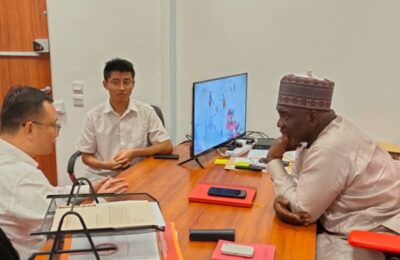Spread the love
A Medical practitioner, Dr Kelechi Okoro, has advised Nigerians to shun archaic and religious beliefs that made women to feel they were unclean and unworthy when menstruating.
Okoro, the Medical Officer at the Kogi Government House Clinic, gave the advice on Monday in Lokoja at the second day of a two-day health sensitisation programme organised by a corps member, Miss Oyebimpe Olofin.
The theme of the programme is: “The Adolescent Girl and Menstrual Hygiene.”
Kelechi said: “In this part of the world, some people referred to menstruation as a taboo, shameful and dirty.
“Some religions also made women to feel like they are unclean and unworthy when menstruating.
“The myths, such as: if a menstruating woman touches an animal, it will be infertile; if she touches a plant, it will dry up and die.
“If she sleeps in the same bed with her husband, he will be unfortunate or poor; and if she takes her bath, she will remain infertile.
“In fact, some female students are so shy to tell someone else that they are observing their period; even some have to take days off school, so they can hide in shame.’’
She said that the archaic belief had made some of the students to be absent from schools, thereby reducing attendance in school and low productivity in academics.
“Menstruation should not be something hidden or to be ashamed of.
“Instead, the girls should be empowered with enough information and means to make their menstrual periods more hygienic and comfortable for them,” Okoro said.
The expert decried such beliefs, saying that they were just mere myths and untrue.
According to her, menstruation is a monthly shedding of the lining of the uterus, where menstrual blood and tissues flow out from the uterus, through the cervix and vagina which happens once every month.
“The normal duration for menstruation is between three to seven days; if it does not flow up to three days or flows more than seven days, then, it is abnormal and should be investigated.
“Menstruation is one of the major signs of puberty for females. It is a major change in the female body that tells her of the transitioning to being a woman,’’ she said.
The expert advised parents to be closer to their children, especially the girl-child and do more work on them, saying that everything they needed could not be taught in school.
In her remarks, Miss Oyebimpe Olofin, the corps member, told NAN that the two-day health sensitisation was organised to mark the Nigeria’s 57th Independence celebration.
Olofin said that it was aimed at bringing healthcare to the doorsteps of people who could not afford it.
She said that the first day was designated for a medical screening on malaria, diabetes and blood pressure for residents of traditional communities of Kabawa in Lokoja.
The corps member said that no fewer than 117 people were screened.
“Today is the second day of what we started on Sunday to sensitise our girls on menstrual hygiene and how to make re-usable sanitary pads.
“We will also give them free ultramodern sanitary pads at the end of the programme.
“A girl-child should be proud of menstruating and not to be ashamed of it”.
One of the beneficiaries, Miss Chioma Igwe, thanked the corps member for organising the programme to educate female students on menstrual hygiene, saying that she had really learnt new things about menstruation.
The News Agency of Nigeria (NAN) reports that the corps member (Olofin), had on May 27, paid the school fees of 30 students and donated uniforms, 180 books and other writing materials to two schools in Lokoja to mark the 2017 Children’s Day.
(NAN)
Spread the love





